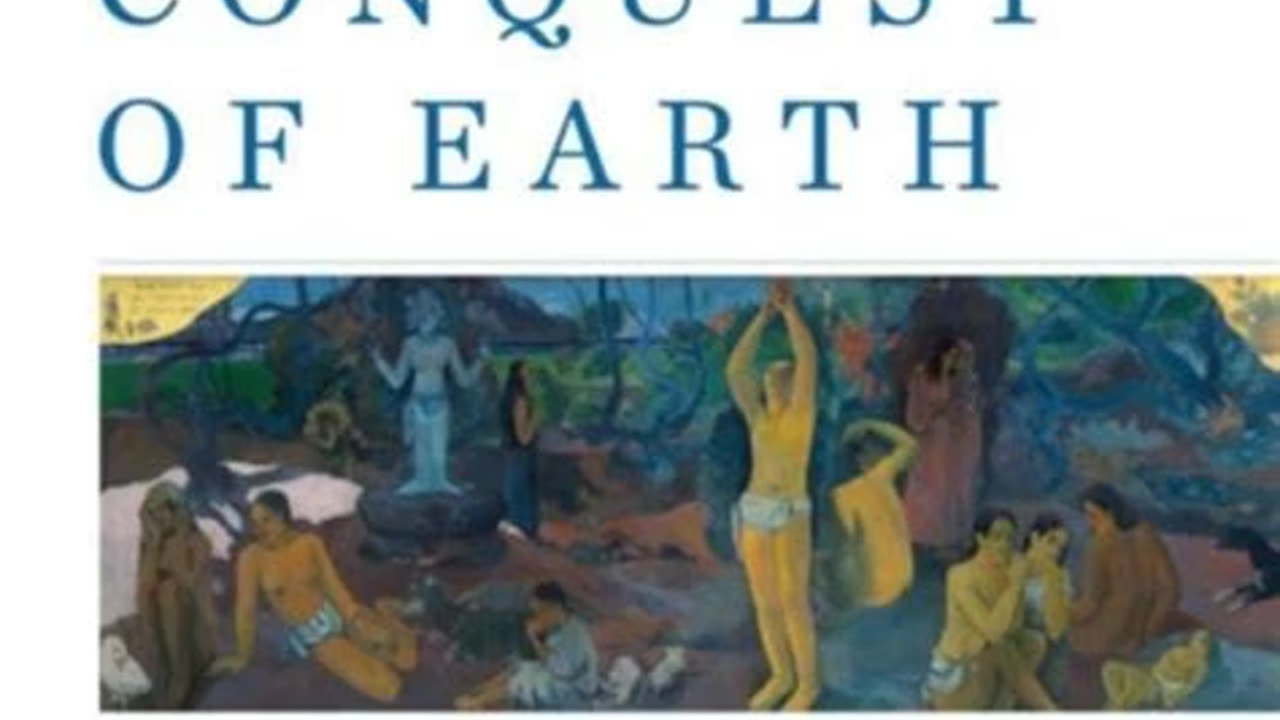Premium Only Content

The Social Conquest of Earth by Edward O. Wilson | Summary
Buy Here: https://amzn.to/45v9kkA
""The Social Conquest of Earth"" is a book written by renowned biologist Edward O. Wilson, published in 2012. In this book, Wilson explores the evolutionary origins of human social behavior and discusses how sociality and cooperation have played a crucial role in the success of our species.
Key points covered in ""The Social Conquest of Earth"" include:
1. **Evolution of Social Behavior:** Wilson examines the evolution of social behavior in various species, from insects to mammals, and how it has contributed to the survival and reproduction of individuals within social groups.
2. **Eusociality:** The author introduces the concept of eusociality, a special form of social organization seen in insects like ants, bees, and termites, where individuals in a colony are divided into distinct castes with specific roles and responsibilities.
3. **Group Selection and Kin Selection:** Wilson discusses the debate between group selection and kin selection theories, which seek to explain the evolution of altruistic behaviors. He proposes a synthesis of these theories, emphasizing that both can play roles in shaping social behavior.
4. **Human Evolution:** Wilson examines the evolution of Homo sapiens and the development of human sociality. He discusses the importance of kin selection, reciprocal altruism, and cultural evolution in shaping human cooperation and societal organization.
5. **Group vs. Individual Selection:** The book delves into the tension between individual selection and group selection in human societies. Wilson argues that group selection has played a significant role in human evolution and that the balance between individual and group selection varies across different species.
6. **Gene-Culture Coevolution:** Wilson explores the concept of gene-culture coevolution, where genetic traits and cultural behaviors interact and shape each other over time. He discusses how cultural practices, such as cooperation, language, and moral norms, have influenced the genetic evolution of humans.
7. **Cultural Evolution and Adaptation:** The author discusses how human societies have adapted to their environments through cultural innovations and how these innovations have affected our biological evolution.
8. **Conflict and Cooperation:** Wilson examines the interplay between conflict and cooperation within human societies. He discusses the roles of aggression, territoriality, and cooperation in shaping human history.
9. **The Biological Basis of Ethics:** The book explores the biological underpinnings of human ethics and moral norms. Wilson suggests that our sense of morality has evolved as a result of both genetic predispositions and cultural influences.
10. **Challenges and Prospects:** Wilson reflects on the challenges faced by modern human societies, including the potential for environmental degradation and conflicts driven by tribalism. He emphasizes the importance of global cooperation and ethical decision-making.
""The Social Conquest of Earth"" offers readers a multidisciplinary exploration of the origins and significance of human social behavior. Wilson's work provides insights into the complex interplay between genetics, culture, and cooperation that has shaped our species and our planet. The book encourages readers to consider the evolutionary roots of human sociality and the implications of our social behaviors for the future of humanity."
-
 5:03:10
5:03:10
Pepkilla
7 hours agoTime to Party Verdansk
13.9K3 -

iCheapshot
5 hours ago $3.39 earnedWhere We Landing Boys! | Warzone Verdansk is Back Yeerrr
42.2K3 -
 1:11:15
1:11:15
Savanah Hernandez
6 hours agoIt’s Time To Start Asking Hard Questions: Where Are The Arrests?
53K104 -
 2:57:33
2:57:33
TimcastIRL
6 hours agoTrump Tariffs Spark Global PANIC, Countries BEG Trump, CAVE To His Demands | Timcast IRL
200K183 -
 1:37:16
1:37:16
Roseanne Barr
8 hours ago $25.08 earnedThe Man Who Saved America | The Roseanne Barr Podcast #93
83.1K46 -
 10:49:37
10:49:37
Dr Disrespect
15 hours ago🔴LIVE - DR DISRESPECT - WARZONE - OG VERDANSK
222K29 -
 16:38
16:38
T-SPLY
11 hours agoDemocrats Are At President Trump For "Liberation Day"
25.3K22 -
 2:53:20
2:53:20
vivafrei
10 hours agoModerating Debate on Syria - Roy Gutman vs. Scott Horton - Regime Change Good or Bad?
168K13 -
 1:04:37
1:04:37
Man in America
11 hours agoCHEMTRAIL WARFARE: Tom Renz Exposes the Military’s SECRET Chemical Attacks on Americans
34.3K22 -
 2:09:33
2:09:33
Precision Rifle Network
1 day agoS4E11 Guns & Grub Live - Playing World Of Tanks!
22.2K3